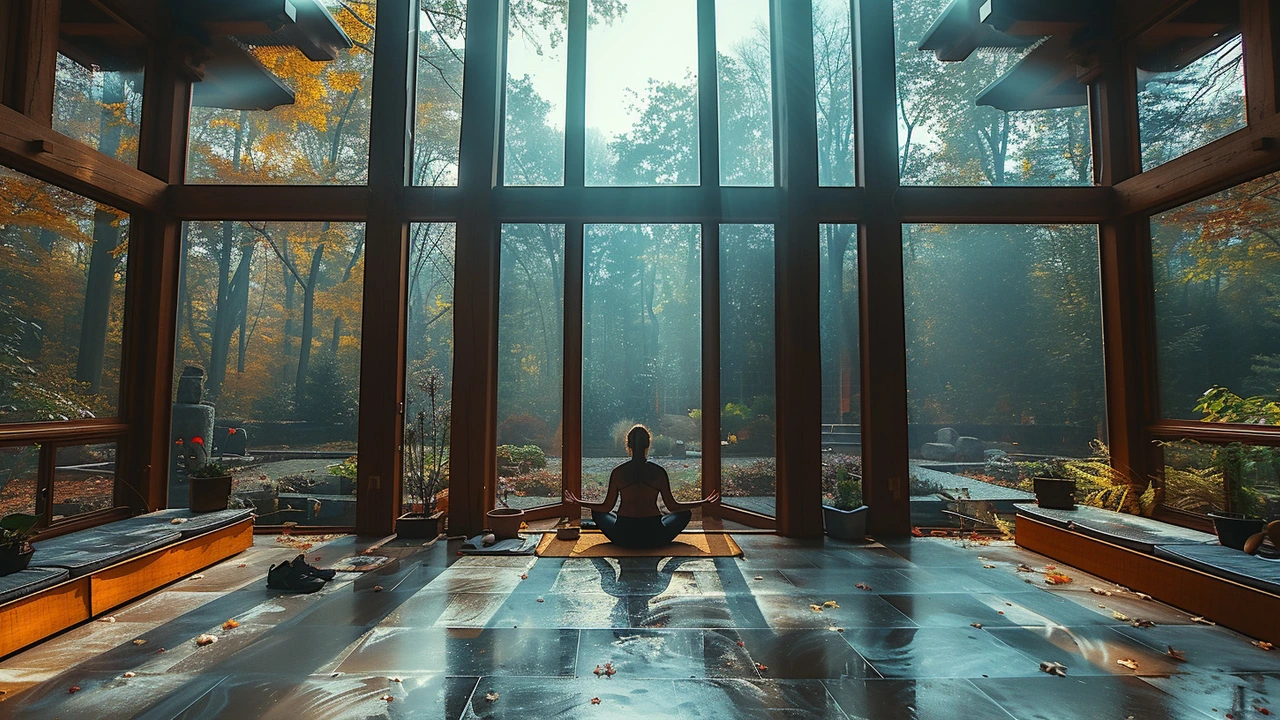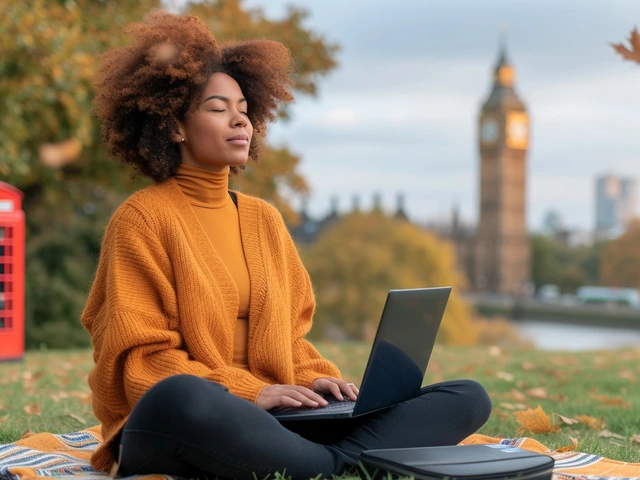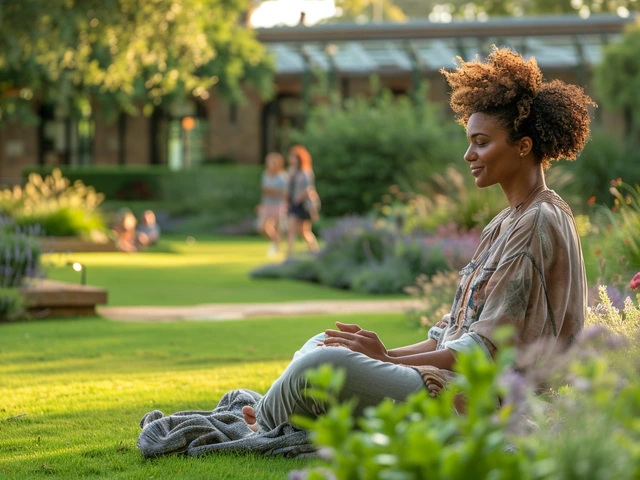Mindfulness and Meditation
Can you remember a time when you felt perfectly calm and serene? Like that day Amelia and I spent on the beach in Maui, with Daisy curled up in the shade and Max bounding through the waves. We were living fully in the present, soaking up each moment as it came. That, my friends, is the core concept behind mindfulness. It involves paying attention to the 'here and now', to the sensations, thoughts and emotions you're experiencing in a given moment, without judging yourselves for having them. You could say it's about taking a relaxed, non-critical, non-reactive stance towards your internal experiences.
And mindfulness isn't just about sand and surf; you can cultivate it anywhere - in the middle of a noisy city, during your morning commute, and yes, even while slogging your way through a mountain of paperwork. This mind-set shifts us from our usual mode, where we spend so much energy ruminating about the past, worrying about the future, or being otherwise mentally engaged elsewhere, taking us away from the reality of the present moment. Can you imagine the peace you'd feel if you could lessen that tendency? It's a worthy pursuit, and trust me, your stress levels will thank you.
Then there's meditation. While mindfulness is a basic human ability to be fully present and not overly reactive, meditation is the training that helps us achieve that ability. So, if mindfulness is a destination, meditation, then, is your vehicle. And it’s not as complex or esoteric as you might think; it doesn't require you to don a monk’s robe or find a secluded mountain top. It's amazing what even a few minutes of focus on your breath can do!
Expressive Writing
Expressive writing, or jotting down your thoughts and feelings, is a fantastic relaxation technique that can help reduce stress incredibly. In fact, several studies have shown that just penning down your emotions can dramatically lighten your mental load, making it a crucial part of your stress-busting toolkit. It offers an unexpected benefit; it gives you the opportunity to see familiar events from a new perspective. How? By forcing you to shape formless experiences and emotions into words and sentences, to put an abstract into a concrete.
You can think of it as directing your own personal movie: you're both the scriptwriter and the director. You get to decide what facts to include, how to frame them, and even the background score, so to speak. And by doing so, you're altering your remembering of the event and reigniting your emotional reconnection to it.
But let’s be clear, when I say "writing", I don't mean crafting an award-winning, perfectly worded piece - absolute honesty matters more than good grammar here. Dig deep, hit raw nerves, and let it all out. It's like having an attentive, non-judgemental audience at all times - your own personal soundboard that won't interrupt, won't give unsolicited advice, and most importantly, won't judge.
Physical Exercise
Our body and mind aren't two separate entities, they're intrinsically linked. And evidence of this is the fact that physical exercise is a stellar conflict resolution method for when your brain and body are at war with stress and anxiety. It can seem counterintuitive to task your body when you're feeling exhausted by stress, but this is actually the perfect time to get moving!
Exercise of any kind, whether it's a gentle yoga session or an adrenaline-pumping spin class, triggers a slew of positive physiological changes: it stimulates the production of endorphins, amps up your feel-good neurotransmitters, and acts like a natural anti-anxiety remedy. It provides a distraction, allowing you to find some quiet time to break out of the cycle of negative thoughts that feed stress.
In fact, if I may share a personal story here, I remember a time when I was particularly stressed about a looming deadline. I actually chose to lace up my running shoes rather than diving into my work. Amelia was surprised. Max, though, was thrilled! The result? Post run, my mind was alive and my stress levels had subsided substantially. Proof enough, wouldn't you say?
Connecting with Nature
Here's my last, but by no means least, relaxation technique: getting in touch with the beauty outside your window. Nature. It's restorative, it's healing, and it's free! We're living in an undeniably digital world, where even our relaxation often revolves around screens. Cue nature, the ultimate stress buster.
The psychological benefits of immersing oneself in the natural world are substantial. Oxygen-rich, green spaces help lower heart rate and blood pressure, reduce stress hormone production, and boost the mood. Interestingly, some studies have found that even looking at images of nature can unwind the tension in one's body – perfect for when you're stuck indoors.
I personally love embarking on hikes or letting Max pull me along on his spirited dashes whenever I’m feeling overwhelmed. Just stepping outside for a breath of fresh air can stir a sense of profound relaxation. And yes, Daisy's bird-watching sessions count too!
In a nutshell, relaxation techniques are a crucial part of managing stress and enhancing overall well-being. They're about more than just a good time. They're about empowering yourself, becoming more resilient, and less susceptible to life's inevitable stressors. So whether it’s mindfulness, expressive writing, physical movement, or being one with nature, try to incorporate these relaxation habits into your daily lives. Remember, it’s the small changes that make a big difference over time. Who knows, you might just end up having a good time while getting healthier!






Write a comment: